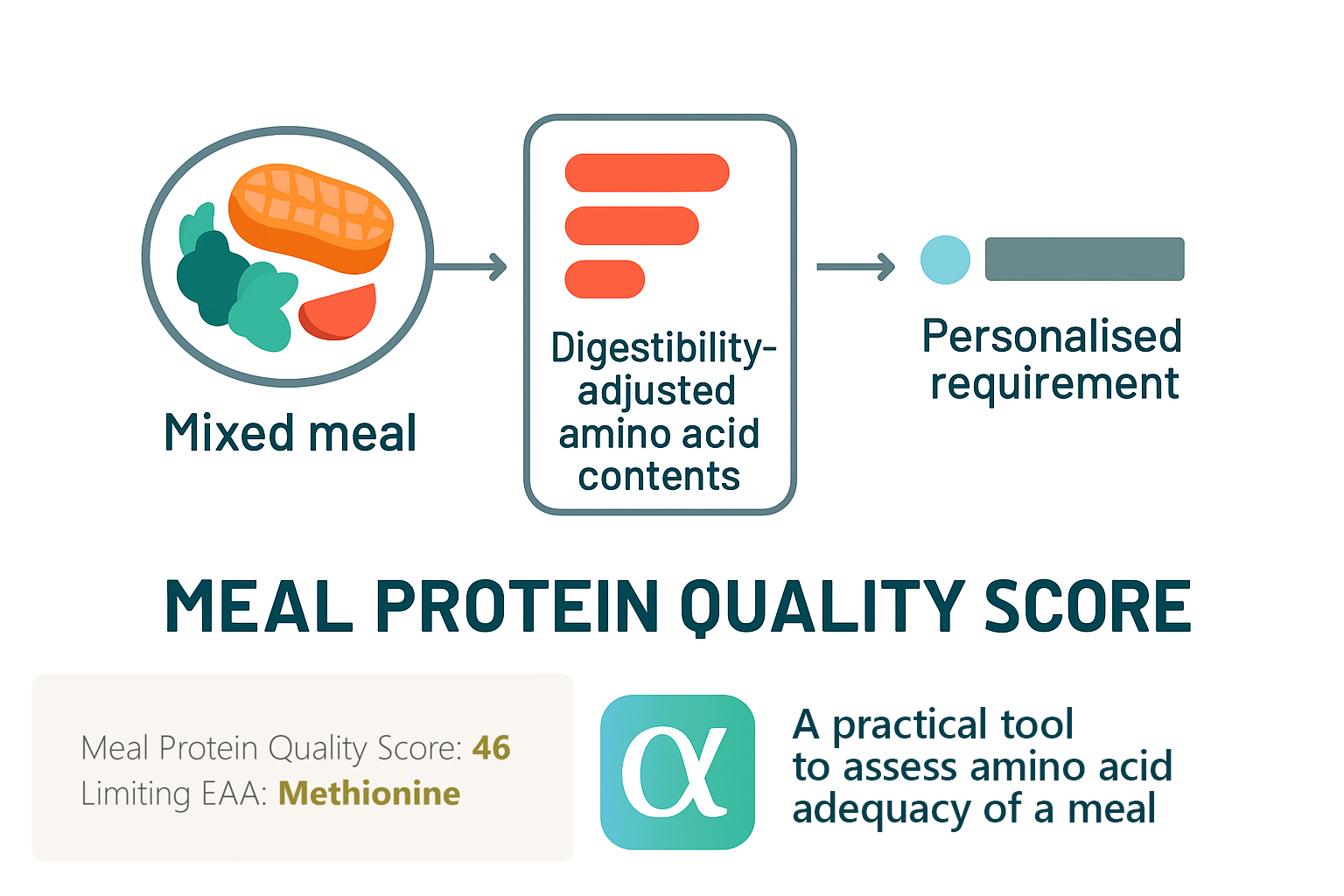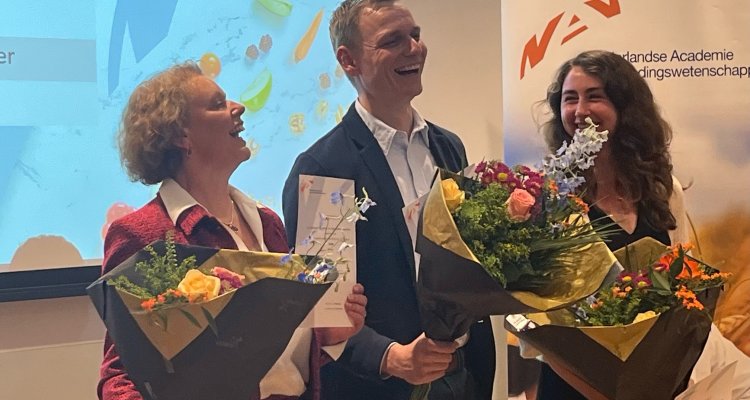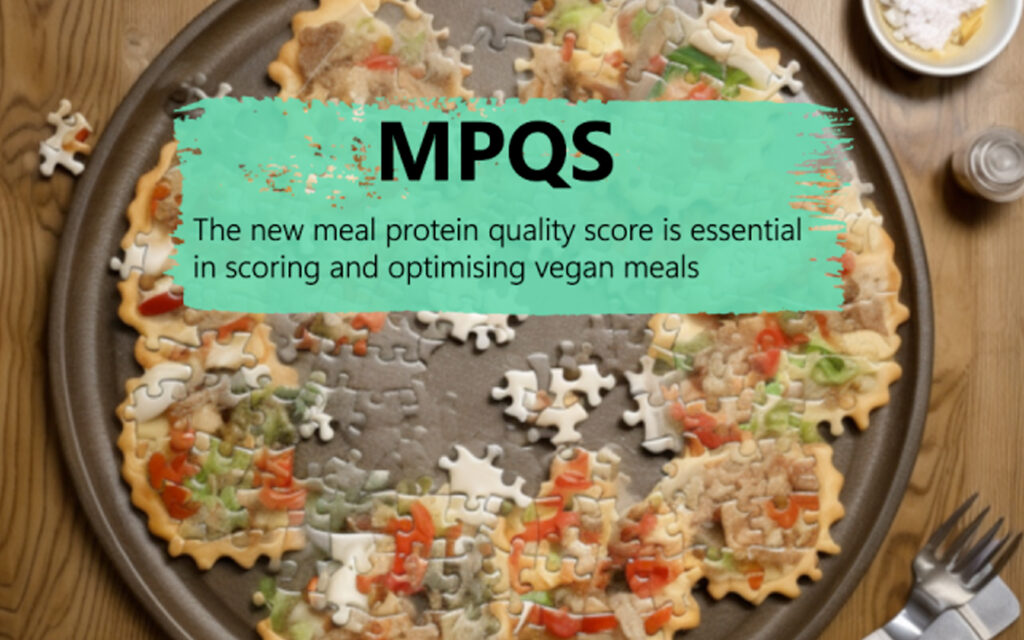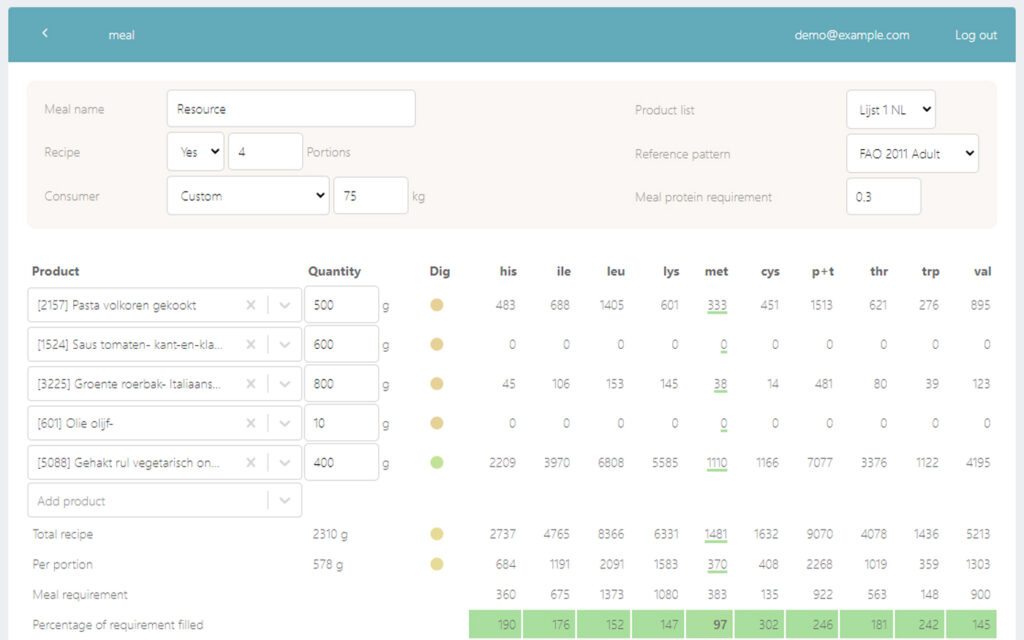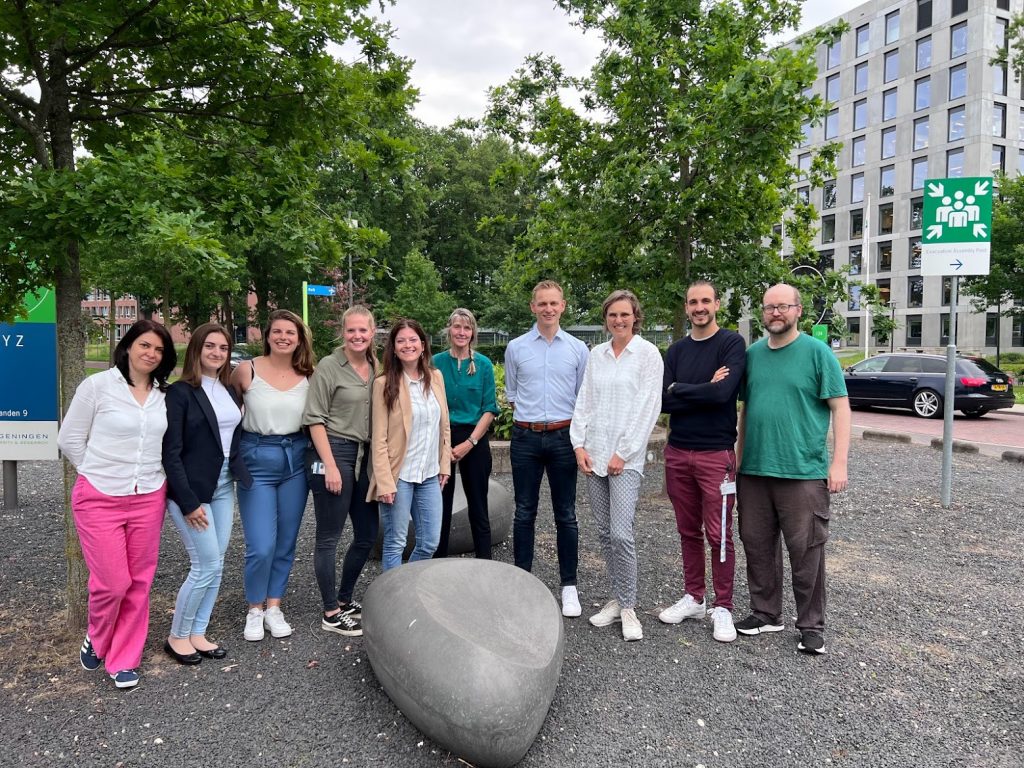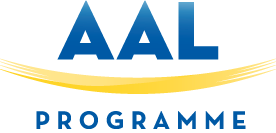All updates on the Alpha project
Here we share project updates and other news stories.
Wageningen, June 2024 – A team of researchers led by Dr. Pol Grootswagers has introduced a new method to assess the nutritional quality of meals: the Meal Protein Quality Score (MPQS). Published in Current Developments in Nutrition, the study outlines a novel way to evaluate both the quantity and the quality of protein in mixed meals—particularly relevant in the context of plant-based diets and healthcare nutrition.
Why MPQS?
Until now, tools like PDCAAS and DIAAS were primarily applied to individual food ingredients, making them less practical for evaluating full meals. The MPQS fills this gap by:
-
Assessing meals against personalized amino acid requirements
-
Incorporating protein digestibility
-
Summarizing the most limiting amino acid in a single score
This enables dietitians, chefs, and researchers to judge whether a meal supports muscle maintenance and metabolic health, especially for populations with higher needs such as older adults or hospital patients.
Real-World Applications
The MPQS is already integrated in the Alpha Tool, a digital platform developed by Wageningen University to support sustainable and high-quality menu development. The score helps:
-
Dietitians ensure amino acid adequacy in patient diets
-
Chefs improve plant-based recipes without compromising nutrition
-
Researchers and public health professionals assess dietary quality at the meal level
What Did the Study Show?
The team applied the MPQS to over 5,000 meals from Dutch food consumption data and found:
-
Meals with a higher proportion of plant protein had significantly lower MPQS values
-
Breakfast had the lowest average MPQS, indicating potential for improvement
-
Adjusting for digestibility (using DIAAS where available) strongly influenced the score, especially in high-plant meals
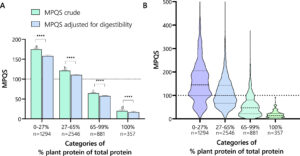
A Step Forward in the Protein Transition
“This score bridges the gap between scientific accuracy and practical applicability,” says Dr. Grootswagers. “It allows us to make plant-based meals both healthier and more acceptable in settings like hospitals, schools, and homes.”
The publication marks a key milestone in making high-quality, sustainable nutrition measurable—and actionable.
👉 Read the full paper here:
Meal Protein Quality Score: A Novel Tool to Evaluate Protein Quantity and Quality of Meals
Pol Grootswagers, Assistant Professor of Nutrition and Ageing at Wageningen University, has won the NAV Impact Award for his work on the Alpha Tool. This innovative tool helps chefs, dietitians, and researchers accurately calculate the protein quality of meals. The Alpha Tool was developed to address the challenges of the protein transition in hospitals, where plant-based meals are increasingly being served.
Supporting the Protein Transition in Hospitals
The protein transition within hospital settings is gaining momentum. More and more chefs are developing plant-based recipes to meet the growing demand for sustainable and vegan meals. However, these dishes often face resistance from dietitians who were traditionally taught that high-quality protein primarily comes from animal sources. While hospital patients do indeed need sufficient high-quality protein, it is a misconception that protein must be animal-based to meet these needs. With the right ingredients, plant-based meals can provide all the essential amino acids the body requires.
The Alpha Tool: Bringing Scientific Insights into Practice
The Alpha Tool provides chefs and dietitians with insight into the digestibility and amino acid composition of their ingredients, enabling them to experiment until all essential amino acids are present in a dish. This offers a practical solution to adapt and upgrade plant-based recipes so they meet the nutritional requirements of patients.
“By translating the latest scientific insights directly into practice, we’re building a bridge between chefs and dietitians and removing a key barrier in the healthy protein transition,” says Grootswagers. “In doing so, we create impact in both sustainability and health.”
A Joint Development
The Alpha Tool is the result of years of research and development. The first steps were taken in 2021 with funding from the EU AAL programme. Subsequent grants were provided by Cosun Nutrition Center and Helsefonden. In close collaboration with Inge Tetens from the University of Copenhagen and many others, the tool was further developed. The official launch of the Alpha Tool is planned soon.
A short version of our full preprint, which is accessible here.
Background:The recent shift towards increased plant-based protein consumption has necessitated the development of new tools to evaluate the quality and quantity of protein in meals, especially given the changing dietary guidelines and the adoption of plant-centric menus in healthcare and other settings.
This week, we have had the final round of focus groups with dietitians and older adults, in The Netherlands and in Copenhagen. The focus groups are thereby finished. In three different sessions, in June, September, and November, we gathered targeted input from these potential end-users of the tool. They expressed their specific needs, the circumstances in which they would use the tool, ideas for additional functionalities, and the design of the application. In the final focus group meeting, we were able to show them the first screens of the tool! We have received a lot of information on the clarity of these screens, and we know exactly how to keep on developing.
The current project is almost at its end. The 9 months funded by AAL end in December. This means that we are busy with writing the final report and manuscript and that we are actively seeking new investors/subsidies to further develop the tool. In the next phase, we aim to test the calculations and feedback of the AI by running simulation data, and after improving identified flaws, test the application in a real-life setting. So, stay tuned, because this adventure is all but over!
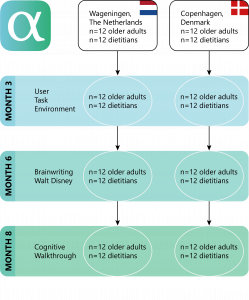
User Task Environment, Brainwriting, Walt Disney Method, and Cognitive Walkthrough were used to co-create the amino acid tool in focus groups with dietitians and older adults
Focus groups have started
We have successfully recruited (almost) all participants for the focus groups in Wageningen and Denmark. The first focus groups have been concluded, and information, directions and ideas from the participants have been used to guide us in developing the right tool. Meanwhile, our researchers are busy systematically transcribing all information from the focus group meetings for scientific publications. We kindly thank all participants for these first sessions, and we look forward to seeing you again in September for the next sessions.
A real-life gathering
As usual these days, we have mainly met each other digitally in Teams meetings. Even within Wageningen, the meetings between WUR and FI had been mainly online, until a few weeks ago. But last Friday, we met with delegates of all four consortium partners in Wageningen (see picture). It was a real pleasure to meet our colleagues from Romania and Denmark. After a very productive, information-dense meeting of a few hours, we continued with a nice dinner in the city centre of Wageningen.
Accomplishments
Being at almost one-third of the project timeline, it is good to check our progress so far. We have made great advancements with our databases, algorithm decisions, front-end designs and focus groups. all work packages know exactly what to do in the coming time. We look forward to the coming months, in which we can finally start building the machine!
Ønskes: 12 60+ årige, som ønsker at bidrage til udviklingen af et vejledningsværktøj vedr. planteproteiner. > continue reading
Gezocht: 12 ouderen die willen meewerken aan de ontwikkeling van een voedingstool > continue reading
Gezocht: 12 Diëtisten die willen bijdragen aan de ontwikkeling van een aminozuurtool. > continue reading
Ønskes: 12 diætister, der ønsker at bidrage til udviklingen af et aminosyreværktøj > continue reading
